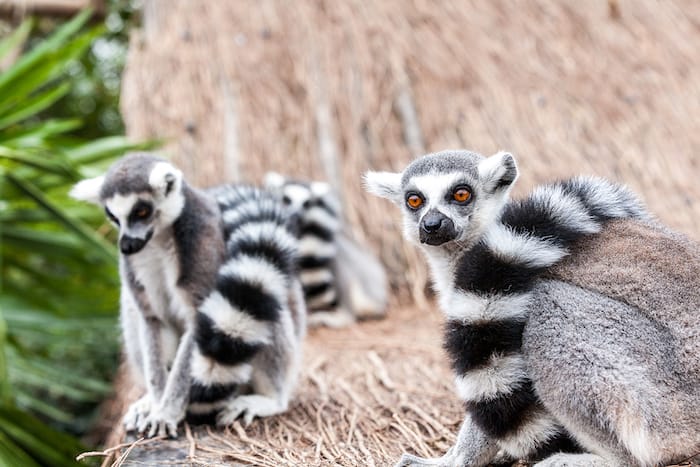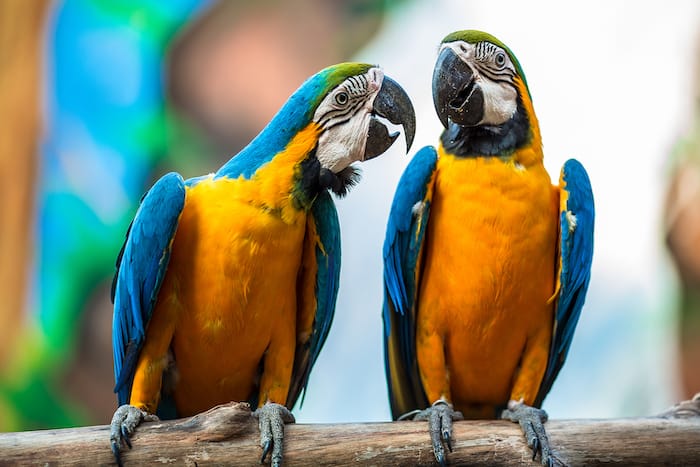A zoo is an enclosed place where captive animals are displayed for humans to see. Initially, zoological parts focused on displaying unusual creatures, often in cramped and small spaces. But, modern zoos focus on education and conservation. Although zoo conservationists and advocates argue that zoos educate the public and rescue endangered species, activists on animal rights believe that it costs more to confine animals compared to the benefits of confining them. They also opine that there’s no justification for violating animal rights, even when repulsing extinction.

Brief History
Human beings have kept wild animals for many years. Wild and exotic animals were first kept for practical uses in 3500 BCE by rulers in Egypt and Mesopotamia, where they kept the animals in enclosed pens. Modern zoos evolved during the Age of Enlightenment and in the 18th century when scientists started to be interested in zoology and the study of animal anatomy and behavior.
The arguments against zoos outnumber those that support them.
Why are Zoos Good?
Zoos are an excellent source of entertainment, but their main objective is to educate the public about wild animals and how we can protect them. Animals living in zoos are like ambassadors for their colleagues in the wild, and zoos are also significant in scientific research.
Zoological parks work tirelessly to rescue animals whose lives are threatened in the wild. They take in animals at risk, breed them in captivity, and then send them back into the wild. Taking care of the animals far away from their predators gives them a chance to repopulate. They don’t have to worry about safety in zoos as they are well taken care of.
Zoos also collect exotic pets from people who want to get rid of them, which gives the pets home while generating revenue for the zoos.

Related Reading
Why are Zoos Bad?
Conservationists and animal rights activists are not comfortable seeing wild animals in zoos. This is because of the inhumane conditions that the animals have to endure. The following are reasons why animals should not be kept in zoos.
Insufficient Space
Despite the level of dedication at the zoo, it is almost impossible to meet the space requirements for the animals. Big animals such as tigers, elephants, and lions do not even have one percent of what they would get in the wild. Usually, they are locked in cages and released into an artificial habitat when visitors come to the zoo.
Besides, the animals have limited freedom in the tiny spaces they are made to live in. Despite being fed well, the animals have limited movement, which can cause stress. For instance, polar bears are kept in a space a million times smaller than they would get in the wild. This can make them neurotic, making them bite bars, sway and pace repetitively.
Animals Endure Torture in Zoos
As alien as the concept seems, animals are tortured in zoos. They are beaten, starved, and tortured for misbehaving. When animals are confined in zoos, they are expected to learn how to entertain visitors at the zoo. A lot happens during the teaching process, such as torture when they fail to follow instructions.
The killing of all Excess Animals
Several years ago, a UK zoo killed an entire pack of wolves as they exceeded their handling capacity. As unbelievable as this sounds, it is happening, and something should be done to stop such actions in the future. All the excess animals that are gotten rid of raise several questions, but the fact remains that the action is unacceptable in whichever case.

Animals are not Preserved but Propagated.
Initially, zoo management argued that zoos protect endangered species, which is no longer the case. Firstly, many animals in zoos are far from being endangered. Also, most of them born in zoos have minimal survival chances, which means they are at risk if they continue to live in zoos. Animals only survive in their natural habitat. If zoo managers care about preserving these species, they should do so in the wilderness.
Animals Undergo Trauma in Zoos
Anyone would be traumatized if all their friends died and were left alone. The same applies to animals when their mates die and end up alone in the enclosure. Several years ago, a 32-year-old elephant in Los Angeles was left alone after his companions died. The elephant exhibited signs of stereotypy, abscesses, and infections for an animal of his status. This happened because he witnessed all his companions die and was left alone to please visitors. Wild animals are traumatized when they lose their fundamental instinct to hunt and roam around.

Is There Hope for Zoos?
There are some zoos that are looking to evolve. Zoos like the Brookfield Zoo near Chicago in Illinois, United States are attempting to transform the notion of what a zoo should be. The zoo plans to expand and enhance animal habitats and focus heavily on conservation education. The first of such transformations will debut in 2025 and include a $66 million, nearly 3 acre outdoor tropical forest with dynamic environments that will allow animals to choose how they use their habitat. Education programs will include the King Conservation Leadership Academy; a youth program for science learning that will ready participants for careers and or college.
If more zoos would trend in this direction, we might not have to continue to debate as much about if zoos are good or bad. Teaching conservation and how to be a good steward of the environment should always be the top goal of any zoo.
Learn about gorilla conservation in the Virunga National Park in the Democratic Republic of Congo
